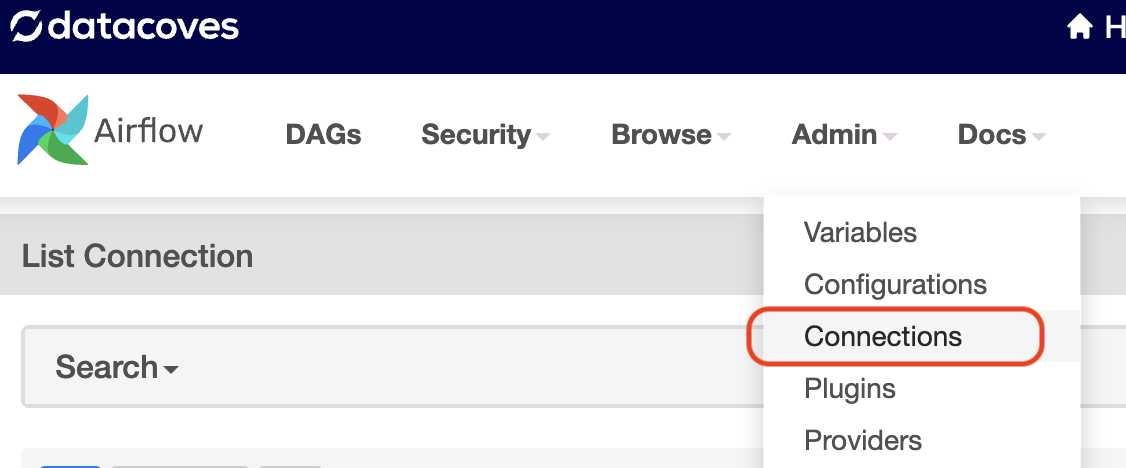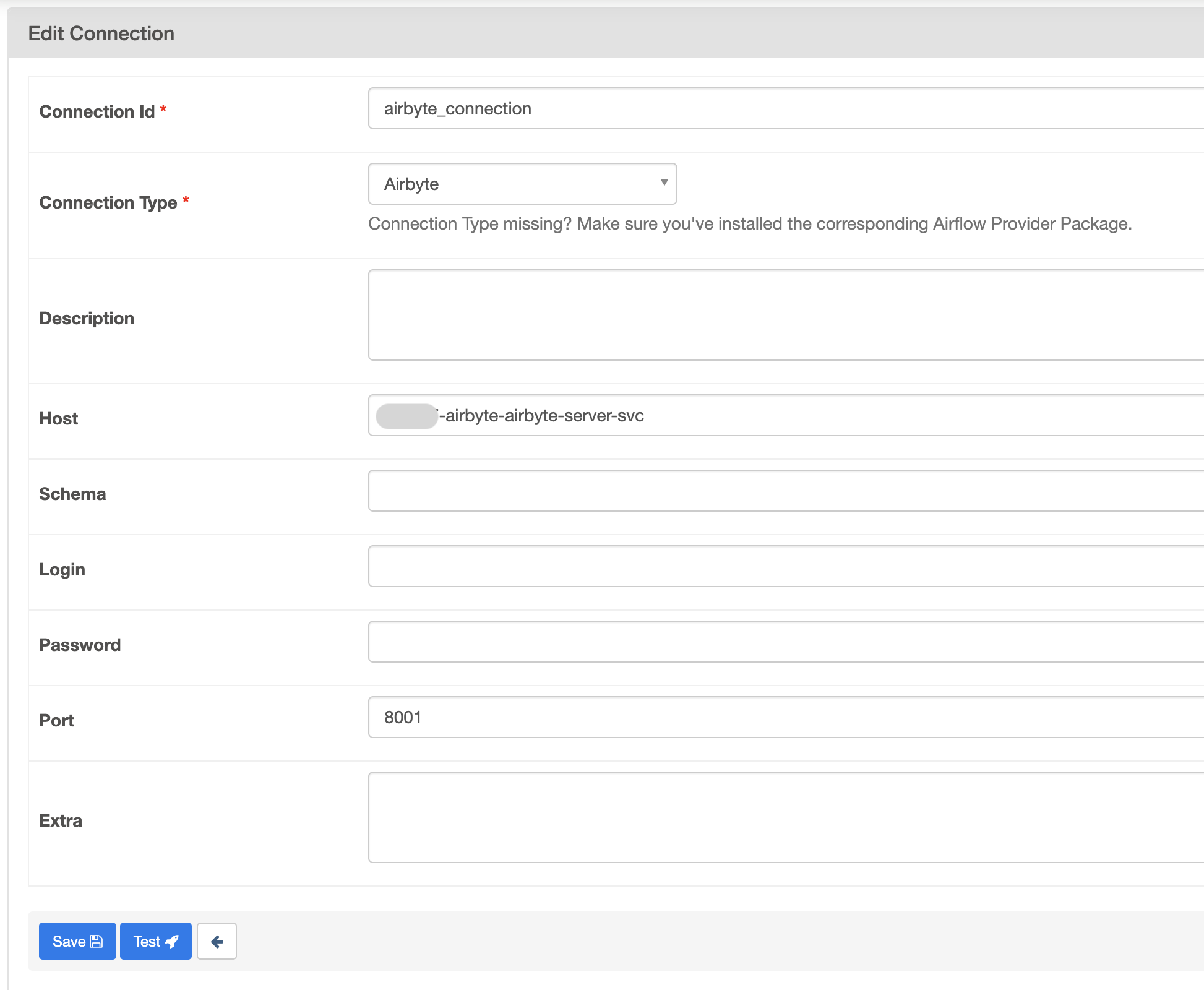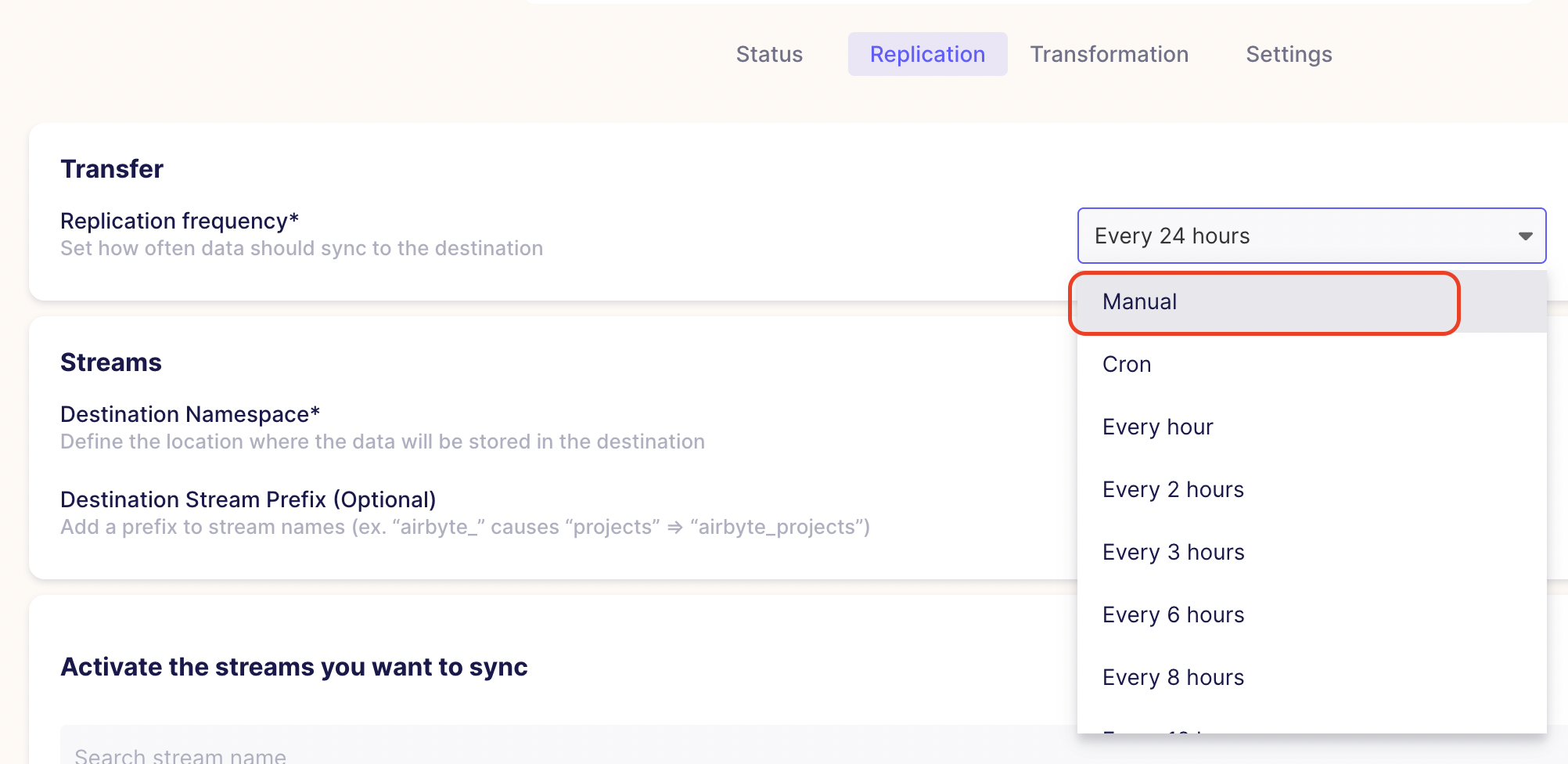Run Airbyte sync jobs
In our quest to simplify the way tools integrate in the Modern Data Stack, we developed the generate airflow-dags command in the dbt-coves library.
The main idea behind this concept is to use tags defined on dbt sources and determine which data to load via different tools (e.g. Airbyte or Fivetran). Using this information, we can dynamically create Extract and Load tasks in an Airflow DAG before running dbt.
Note
Support for Fivetran Tasks coming soon. More Information in run Fivetran sync jobs .
Before you start
Ensure your Airflow environment is properly configured
Follow this guide on How to set up Airflow 's environment.
Airbyte connection
As Airflow will trigger connections in the Airbyte's server, Datacoves automatically adds the connection in Airflow.
To view this connection, a user with the Datacoves sysadmin group can go to the Airflow
Admin -> Connections
menu.

Note
hostis created using your environment (3 letters + 3 digits like xyz123)<environment slug> + "-airbyte-airbyte-server-svc".

Turn off Airbyte's scheduler
To avoid conflicts between Airflow triggering Airbyte jobs and Airbyte scheduling its own jobs at the same time, we suggest you set
replication frequency
to
manual
on each Airbyte connection that will be triggered by Airflow:

Generate DAG's from yml with dbt-coves
To connect Extract & Load with Transform in your DAG, you must configure your dbt-coves config file. We recommend the path to be
transform/.dbt-coves/config.yml
.
Field reference:
- yml_path : Relative path to dbt project where yml to generate python DAGs will be stored
- dags_path : Relative path to dbt project where generated python DAGs will be stored
-
dbt_project_path
: Relative path to dbt project, used to run
dbt lsto discover sources - airbyte_connection_id : Id of the airflow connection that holds the information to connect to Airbyte system. (this was set up above)
Tip
We make use of environment variables that we have configured for you upon set up. For more information on these variables please see Datacoves Environment Variables
generate:
...
airflow_dags:
# source location for yml files
yml_path: "/config/workspace/{{ env_var('DATACOVES__AIRFLOW_DAGS_YML_PATH') }}"
# destination for generated python dags
dags_path: "/config/workspace/{{ env_var('DATACOVES__AIRFLOW_DAGS_PATH') }}"
generators_params:
AirbyteDbtGenerator:
# Airbyte server
host: "{{ env_var('DATACOVES__AIRBYTE_HOST_NAME') }}"
port: "{{ env_var('DATACOVES__AIRBYTE_PORT') }}"
# Aiflow Connection
airbyte_conn_id: airbyte_connection
# dbt project location for dbt ls
dbt_project_path: "{{ env_var('DATACOVES__DBT_HOME') }}"
# Optional
run_dbt_compile: true
run_dbt_deps: false
Example YML DAG
Now you are ready to write out your DAG using yml. In the following example DAG, you can notice a special task
load
that uses a
generator
instead of an
operator
. This will allow for the information to be pulled dynamically from airbyte such as connection_id.
Tip
We make use of special generators from the dbt-coves extension. For more information please see DAG Generators
Field reference:
-
generator
: The Airbyte Tasks Generator uses the value
AirbyteDbtGenerator. -
dbt_list_args
: arguments sent to
dbt lsto retrieve the dbt project sources used to retrieve Airbyte connections. The AirbyteDbtGenerator generator will find the Airbyte connections to trigger using dbt sources's database, schema and table name.
YML version
description: "Loan Run"
schedule: "0 0 1 */12 *"
tags:
- version_1
default_args:
start_date: 2021-01
catchup: false
nodes:
extract_and_load_airbyte:
generator: AirbyteDbtGenerator
type: task_group
tooltip: "Airbyte Extract and Load"
# The daily_run_airbyte tag must be set in the source.yml
dbt_list_args: "--select tag:daily_run_airbyte"
transform:
operator: operators.datacoves.bash.DatacovesBashOperator
type: task
bash_command: "dbt build -s 'tag:daily_run_airbyte+'"
dependencies: ["extract_and_load_airbyte"]